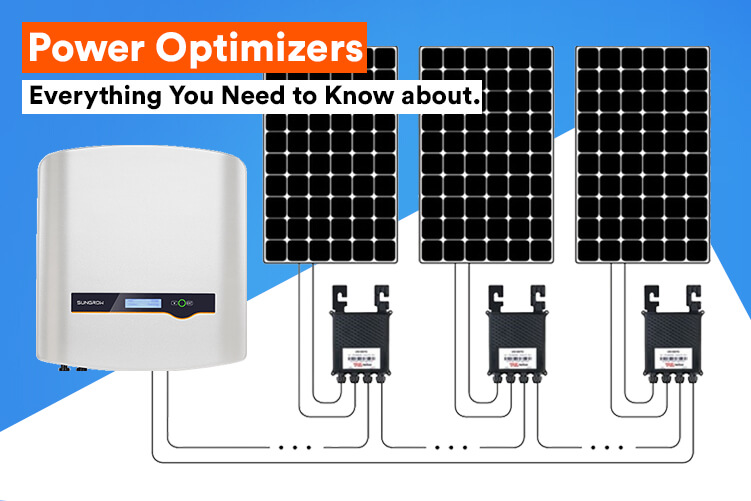Adding solar modules on your roof is a smart technique for lowering your energy expenses over many years. Solar panels do more than just adding value to your property, there are numerous advantages of residential solar panel systems and commercial solar panel systems. To mention a few, solar energy is the renewable energy source, utilizing it reduces our carbon footprints and safeguards the environment. At the same time, solar panel technology is developing quickly so that everyone can benefit from it. If we go back to a few years ago, only the north facing roofs would be feasible for solar installation. However, that is a myth. The solar panels need to be on two sides of the roof in order to get the benefits of it throughout the day. With modern technology, solar PV systems may now be installed on even the most complicated roofs.
What are power optimizers? How do they work?
Power optimizers are utilized to optimize the power generation of solar panels, in brief they are employed to improve the efficiency of the energy that runs through the strings of solar panels. The string inverter, a device known for converting DC energy to AC energy, receives the same current from power optimizers. To make it easy, they are connected to the string inverter. The two main justifications for using power optimizers on the property are:
Complex installations: If your roof doesn’t have a north facing roof or the suitable angles to install the solar panels, power optimizers can be of great help. Panels will function at their best when exposed to sunlight with the aid of optimizers. This means that the power production supply issues other solar power system modules may be having won’t have an impact on the single panel.
Shading issues: Your property might experience some daytime partial shading, which could result in lower output. When the sun shines on your solar modules, you can increase power output by using the optimizers.
What are the pros and cons of power optimizers?
Pros:
1. A small inverter
Power optimizers are an excellent option if your property has a restricted amount of space. Small inverters with individual voltage tracking and cleaning will be used.
2. Personal panel supervision
You can monitor the performance of individual solar panels in real time with the aid of power optimizers. They monitor each panel’s peak efficiency and output voltage.
3. Improved panels’ efficiency
In Shade a power optimizer is known to improve the performance of panels that are exposed to shading, which raises the solar system’s overall output.
Cons:
1. Cost Factor
Every module on the roof has power optimizers installed, which raises the price of the system and the installation fee. It may, however, pay off in a few years.
2. Not each is the same, need to ascertain the specs of the one quoted minutely
The power optimizers’ associated inverters come with a 5–10 year warranty. However, the power optimizers come with a 25-year standard guarantee.
Conclusion
Power optimizers are the ideal to boost the efficiency of your solar panels if your roof is shaded during the day. Both commercial and residential establishments would benefit from the purchase of power optimizers. Speak with a Savvy Solar expert to learn more about solar panels for your property and get a free quote along with a tentative roof layout.
